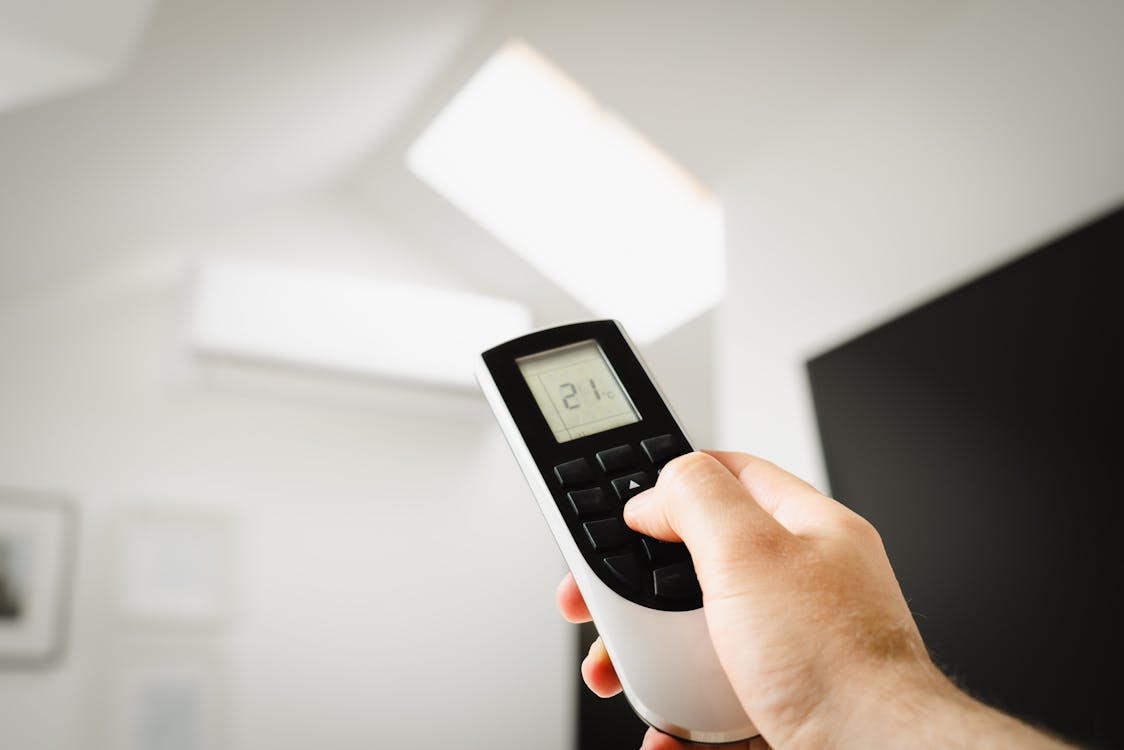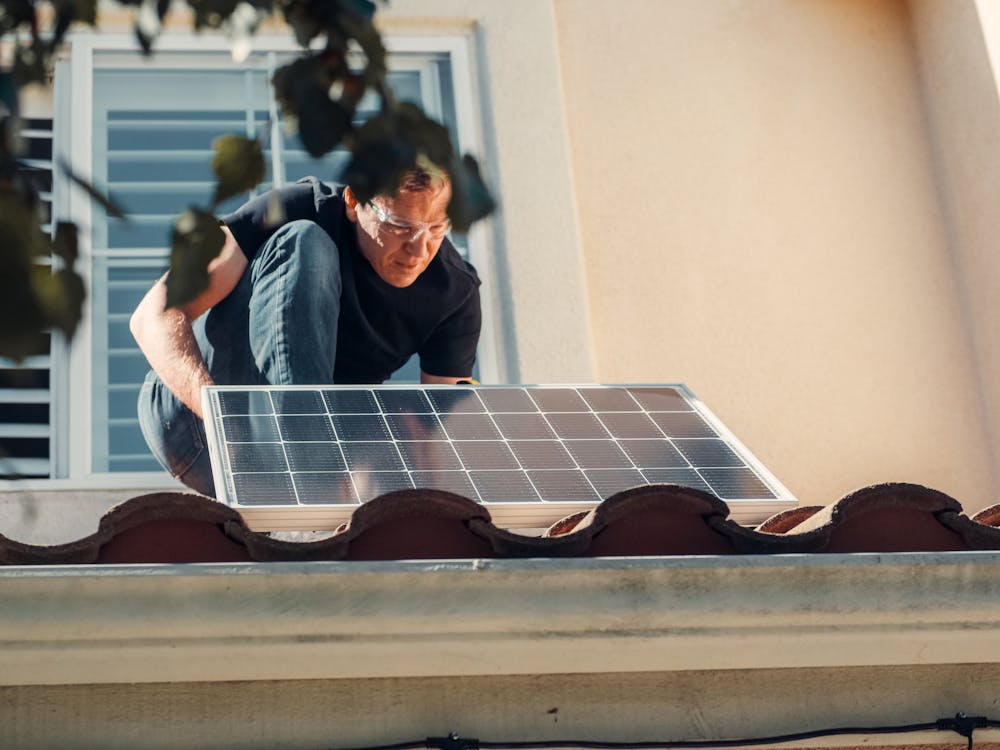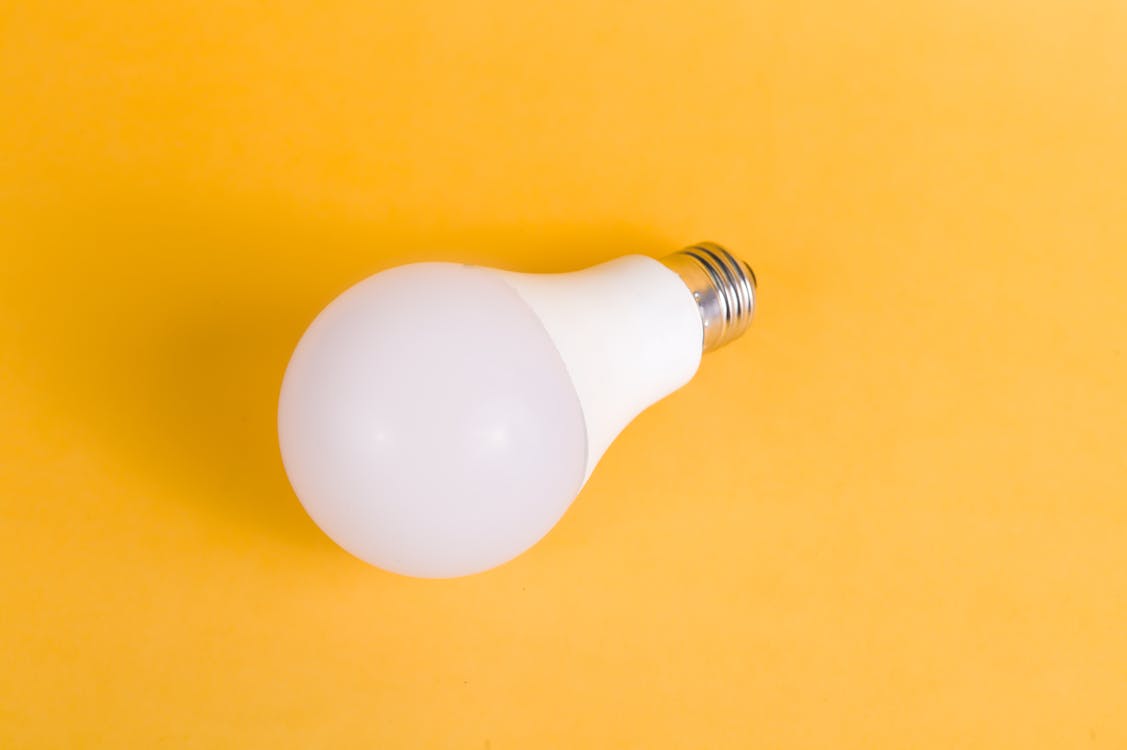As the nation braces for the hot summer months, residents often face soaring energy bills due to increased air conditioning (AC) usage and other lifestyle changes. However, adopting energy-efficient practices can significantly reduce these costs while promoting environmental sustainability. Connector is here with a useful guide to help you keep your homes energy efficient during summer.
The Importance Of Energy Efficiency

Energy conservation is not just about saving money. It’s about securing a sustainable future. With daily energy consumption increasing due to modern technology and changing lifestyles and its consequent environmental costs, reducing household energy use is more important than ever.
"Energy conservation is a vital practice that helps in the realisation of a sustainable future. The energy consumption scale indicates a daily upward trajectory, translating to an increase in the rate of consumption in households for daily activities. This may be due to changing patterns in energy consumption and the development of technology that consumes a lot of energy. There is a dire need to conserve energy for a better future", says Joseph Okoth, environmental scientist and a freelance environmental officer working with National Food Loss and Waste Initiative (Ne'ma) in the UAE.
By adopting simple yet effective practices, residents can contribute to environmental sustainability while keeping their homes cool and energy-efficient during the summer.
Challenges Of Summer Energy Consumption

Summer in Dubai often means temperature soaring above 40°C, making air conditioning a necessity rather than a luxury. However, this heavy reliance on cooling systems can lead to electricity bills skyrocketing and increased strain on the power grid. According to the UAE Ministry of Energy and Infrastructure, cooling accounts for nearly 70% of residential electricity consumption during peak summer months.
Minimising the use of heaters or coolers at home to only serve essential needs is one of the key ways to reduce power consumption. While air conditioning is essential for comfort, excessive or inefficient use leads to unnecessary waste. Finding a balance between comfort and conservation is crucial to managing energy usage effectively. This requires a careful monitoring of energy consumption in your homes and preparing a well informed plan to reduce unnecessary consumption practices.
Let us look at some of the actionable steps you can take in your homes to optimise energy consumption during the coming months.
Actionable Steps For Energy Efficiency

-
Optimise thermostat settings: One of the easiest and most effective ways to conserve energy is to set your thermostat wisely. Maintaining an indoor temperature of 24°C strikes the right balance between comfort and efficiency. According to Dubai Electricity and Water Authority (DEWA), each degree increase in the set point temperature can save up to 5% on AC consumption. So, setting the thermostat at 24°C instead of a cooler 18°C could reduce your cooling energy use by up to 24%. In addition, consider upgrading to a programmable or smart thermostat, which allows you to control the room temperature based on your daily schedule. This not only reduces unnecessary AC usage when you’re away but also gives you better control over long-term energy consumption.
-
Regular maintenance of AC units: Air conditioning is often the biggest contributor to household electricity bills in the UAE. A well-maintained AC can operate at peak efficiency, while a neglected one can lead to rising costs. One common problem is dirty filters. Clogged or dirty AC filters can block the normal airflow and reduce the system’s efficiency significantly. It is recommended to clean AC filters at least once a month during summer, and service the entire unit professionally every four months or at the very least, twice a year. Regular maintenance extends the life of your AC and can reduce energy consumption by up to 15%. If your AC unit is more than ten years old, consider replacing it with a 4 or 5-star energy-efficient model certified by the Emirates Authority for Standardisation and Metrology. These newer units can reduce cooling consumption by up to 25%, according to DEWA's research findings.
-
Utilise fans and ventilation: Fans, especially ceiling fans, can make a room feel significantly cooler by creating a wind-chill effect. This means you can set the thermostat higher while still feeling comfortable. Unlike ACs, fans cool people, not spaces, so remember to switch them off when leaving a room to avoid unnecessary power use. Also, improve ventilation by opening windows during cooler times of the day, such as early mornings, to allow fresh air to circulate and reduce reliance on cooling systems.
-
Harness natural light: Natural daylight is abundant in the UAE and can be a valuable energy-saving resource. “Switching off all lights in the house when there is enough natural light during the day or when leaving a room helps conserve energy”, says Joseph Okoth from Ne’ma. During daytime, open your curtains or blinds to light up your home naturally instead of using artificial lighting. Not only does this reduce your electricity bill, but exposure to natural light also has wellness benefits. If privacy or heat is a concern, opt for light-filtering window treatments that allow daylight in while reducing glare and heat.
-
Invest in renewable energy sources: With the UAE receiving abundant sunlight all-year-round, switching to solar power can be a game-changer. Installing solar panels on your rooftop or balconies can significantly reduce your dependence on grid electricity. In the long run, solar systems not only cut down electricity bills but also help reduce your carbon footprint. As Joseph Okoth from Ne'ma notes, “Relying more on renewable energy sources for lighting and cooking, such as solar panels, wind energy and biogas, can make a huge difference in energy conservation”. While solar panels require an initial investment, government initiatives and increasing accessibility have made them more viable for households in Dubai.
-
Seal and insulate your home: In a hot climate, keeping the cool air in is just as important as generating it. Homes often lose a significant amount of cooled air through leaky windows and doors. DEWA recommends applying weather stripping and caulking around all doors and windows to prevent hot air from entering and cool air from escaping. Additionally, ensure your walls, roofs, and attics are properly insulated. This insulation acts as a barrier against outside heat, maintaining indoor temperatures for longer and easing the load on your AC. Consider using reflective materials or foam panels if your home is older and may lack modern insulation.
-
Adjust thermostat when away: When you’re not home for extended periods, like during holidays or long work hours, it’s wise to adjust your thermostat. Set it to a higher temperature, between 27°C to 28°C, to maintain air circulation without consuming unnecessary energy. This helps preserve indoor air quality and prevents your home from overheating, while still keeping consumption in check.
-
Reduce heat-generating activities: Avoid using heat-producing appliances like ovens, stoves, and dryers during the hottest parts of the day, typically between noon and 4pm. These appliances not only consume a lot of energy but also raise the indoor temperature, making your AC work harder. Instead, plan meals that require minimal cooking or opt for microwave ovens and outdoor grilling to keep heat out of your home.
-
Install energy-efficient lighting: Lighting may not consume as much electricity as cooling systems, but it still adds up, especially when traditional incandescent bulbs are used. Replacing them with LED bulbs is a small change with a big impact. LED lights consume up to 80% less energy, last significantly longer, and emit much less heat, which helps in keeping your home cooler.
-
Use window treatments: Your windows are a major source of heat gain during Dubai’s hot summer days. DEWA suggests using curtains, drapes, shades, awnings, or reflective films to reduce the heat that enters your home. These treatments act as insulation and keep indoor spaces cooler, which in turn reduces how much your AC needs to work. For best results, keep curtains or blinds closed during peak sunlight hours, especially on south-facing and west-facing windows. Consider investing in thermal or blackout curtains for even more effective heat reduction.
Monitoring Energy Consumption At Home
Incorporating smart energy monitoring tools can help residents track and manage their electricity usage more effectively. DEWA's 'Smart Living' is an exemplary initiative, which allow residents to monitor real-time energy consumption in their homes through the DEWA app. This tool enables users to set consumption targets, receive high-usage alerts, and identify ways to reduce unnecessary energy wastage.
Other home energy monitoring systems, such as smart meters and internet of things-enabled energy tracking devices, provide detailed insights into household energy use, helping homeowners take proactive steps in energy conservation. Additionally, automated home systems, including smart thermostats and motion-sensor lighting, further contribute to reducing energy wastage by adjusting energy usage based on real-time occupancy and temperature needs.

By leveraging these modern technologies and implementing energy-efficient practices listed above, you can enjoy a comfortable summer while significantly reducing energy consumption and costs. Embracing these measures not only benefit individual households but also contributes to the nation's sustainability goals.